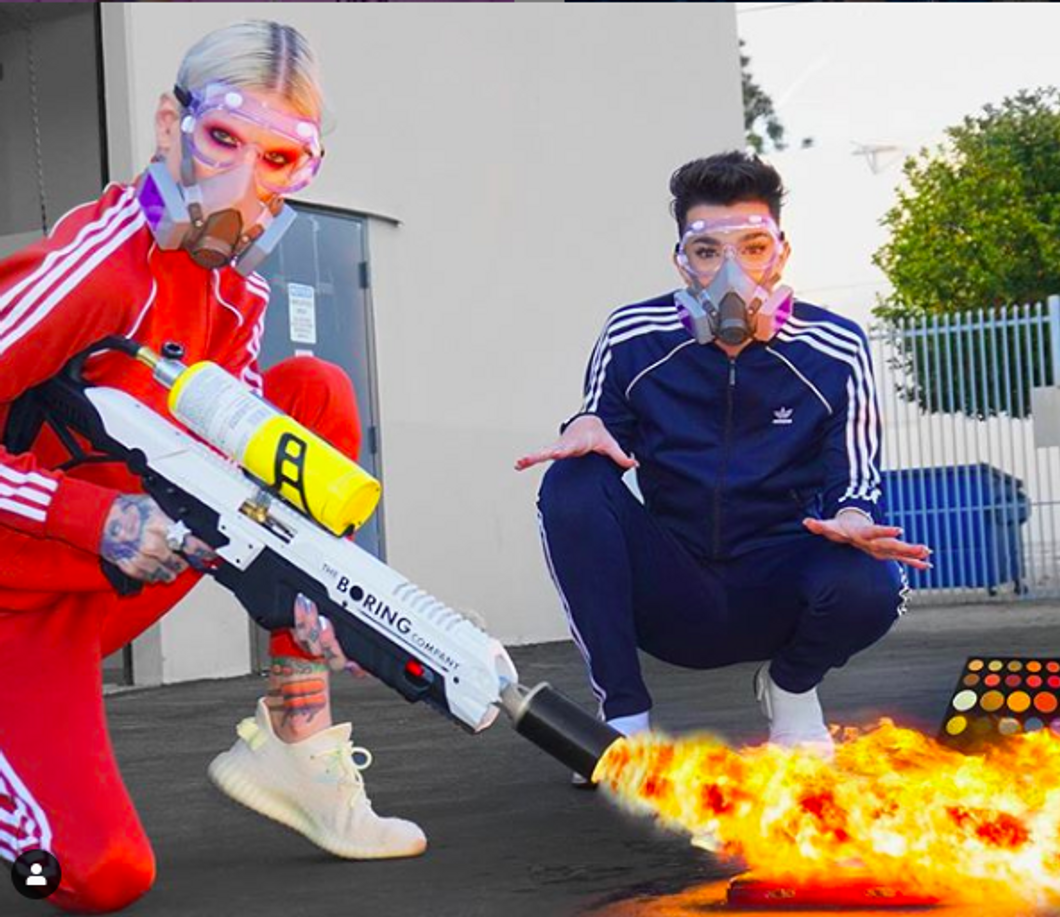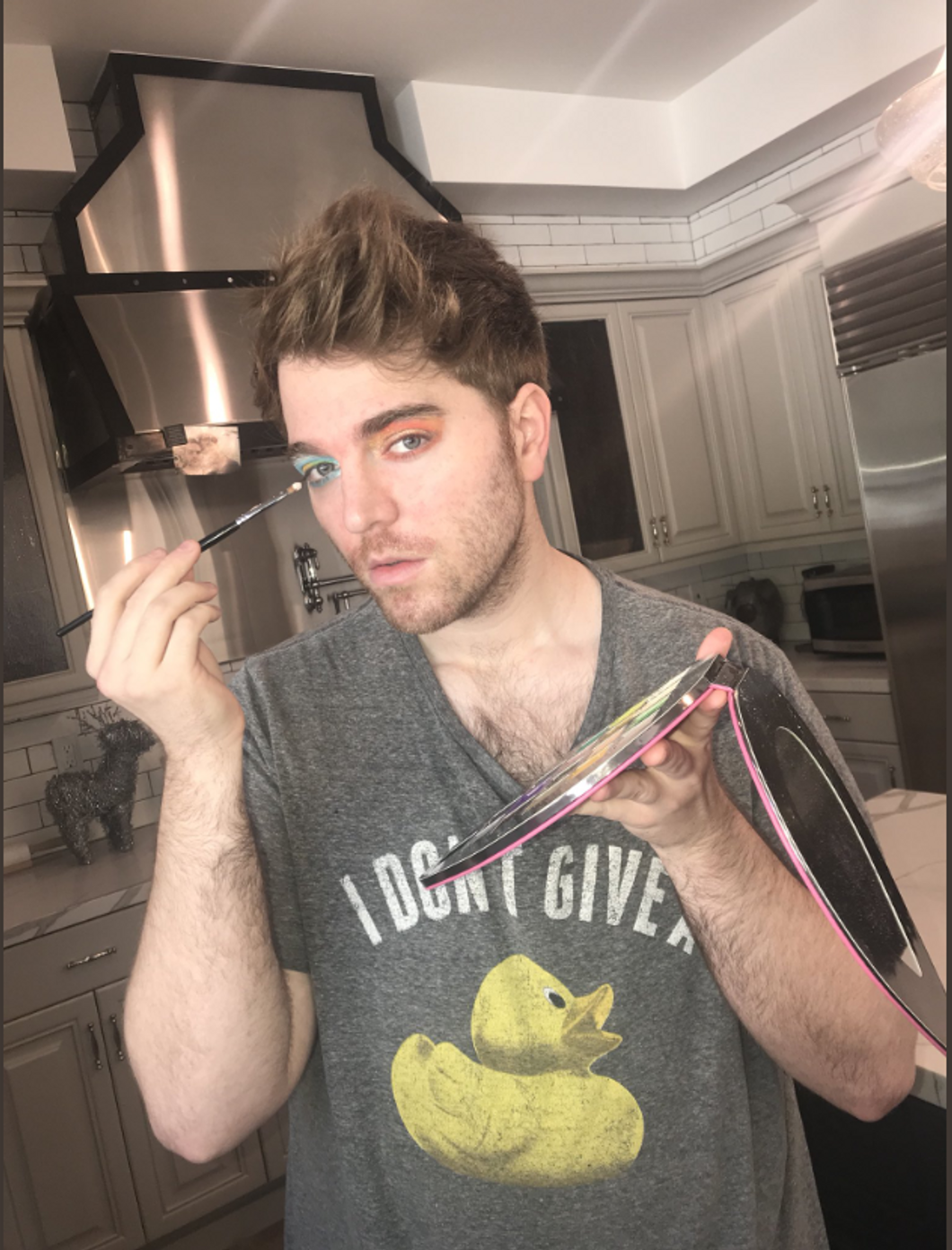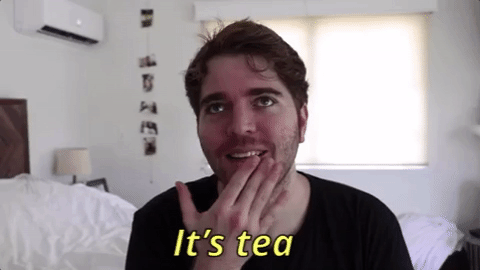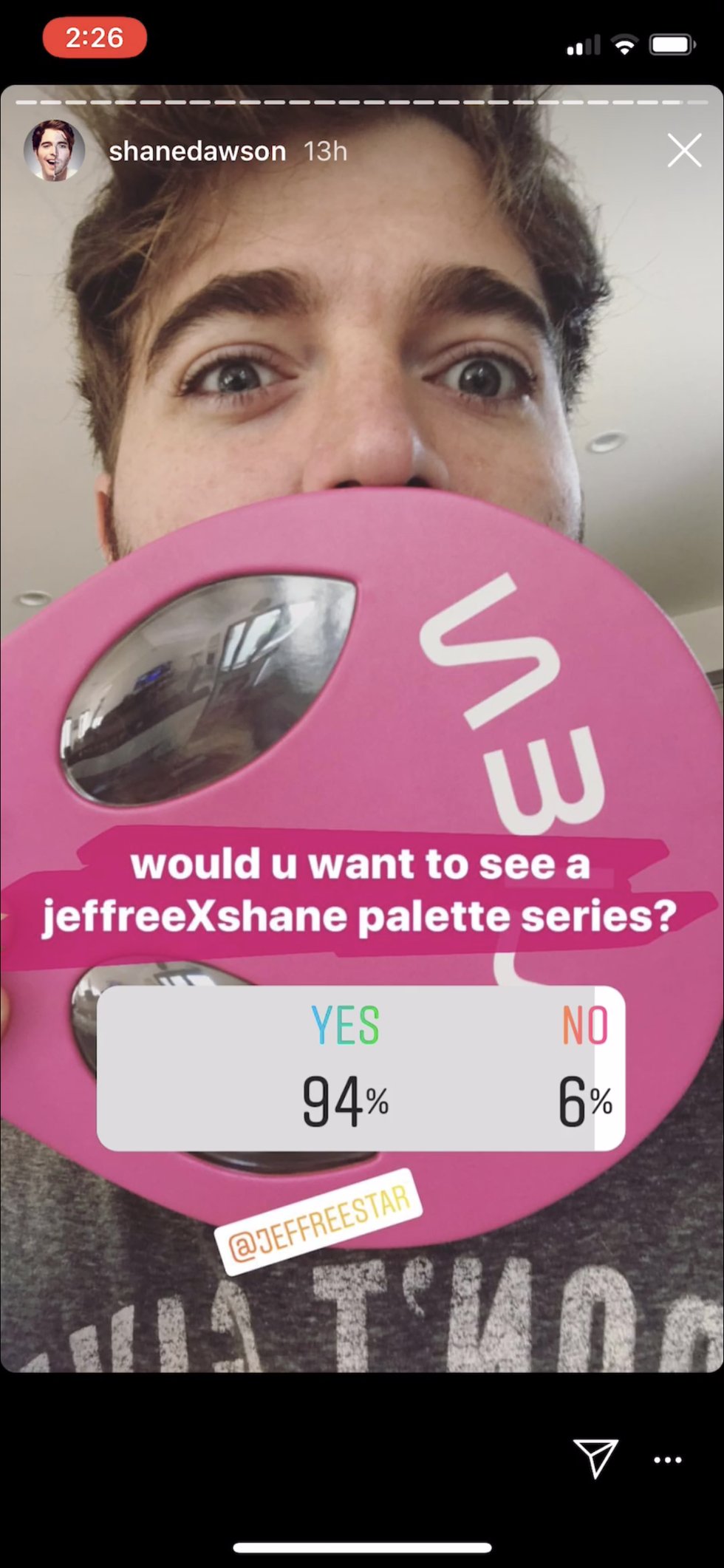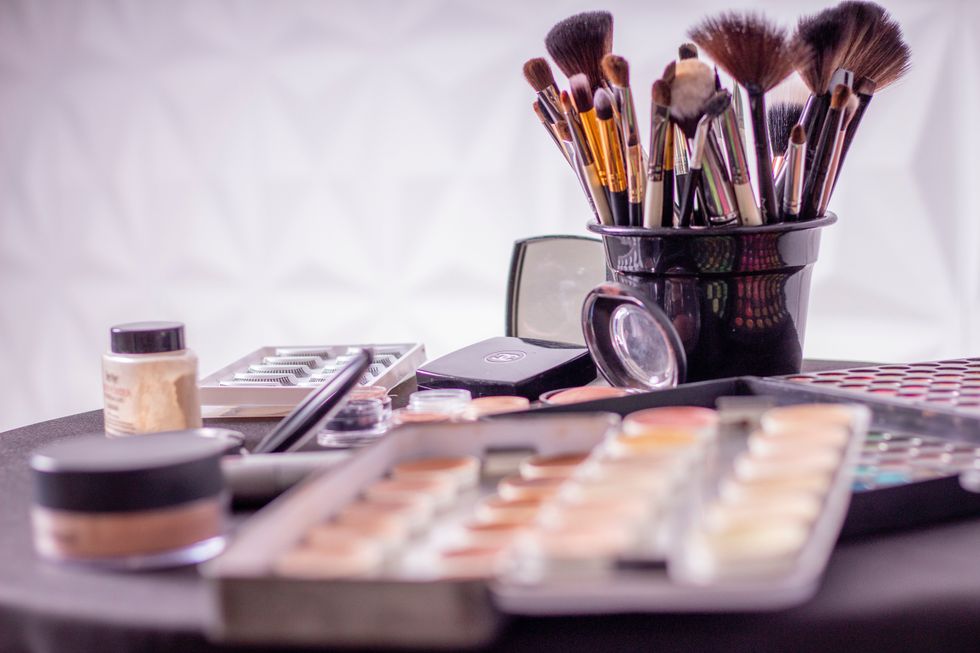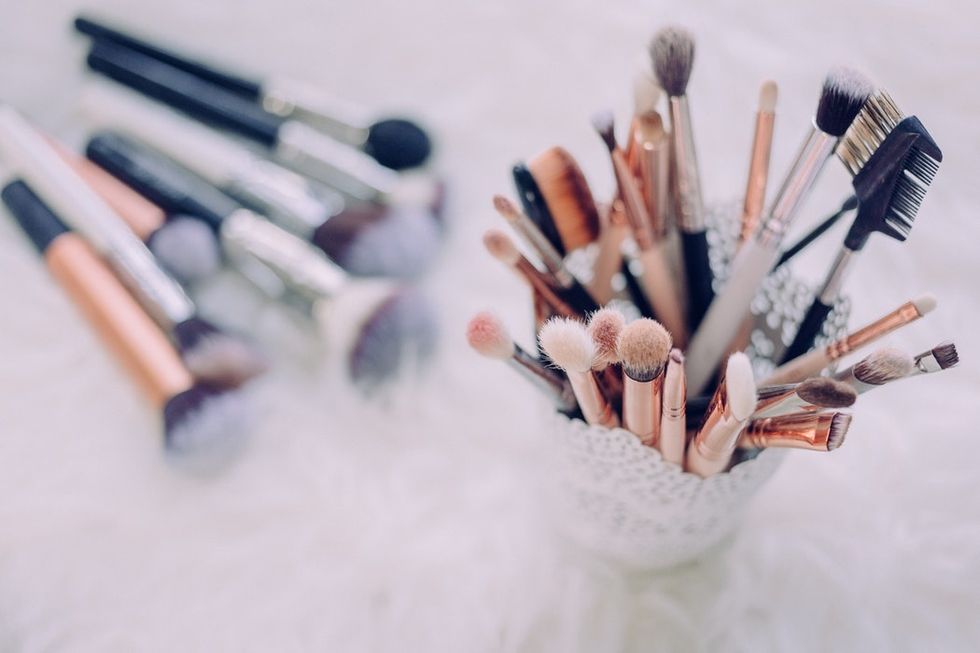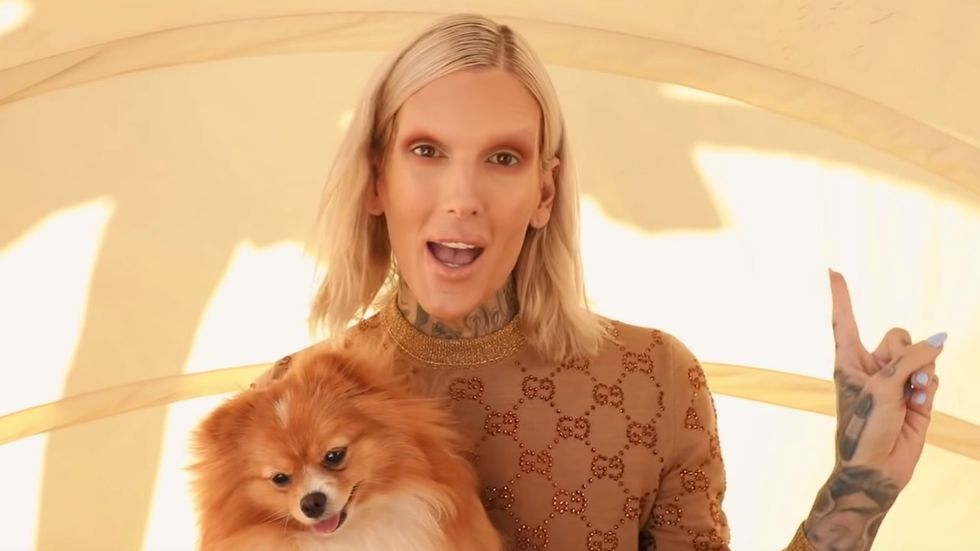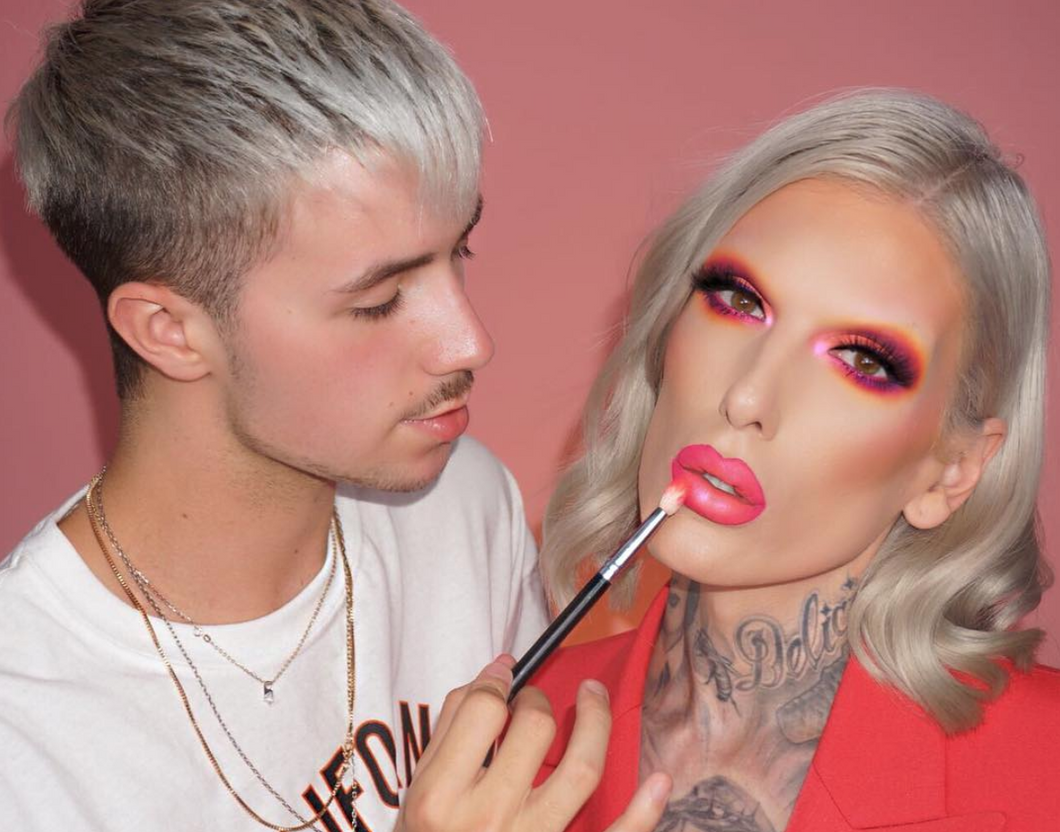Should We Forgive The Racist Pasts Of Jeffree Star And James Charles?
When is it "acceptable" to move on from the past, if at all?
The online beauty community is no stranger to scandal. Whether it's a problematic shade range or a site-wide hack that robbed customers of their money, brands make waves all the time. But what about the influencers, i.e. the beauty gurus — the people who post makeup tutorials, swatches, reviews, etc. onto Instagram, YouTube and Twitter?
They're pretty problematic, too. Let's break down some of the most famous and most infamous beauty gurus.
Jeffree Star
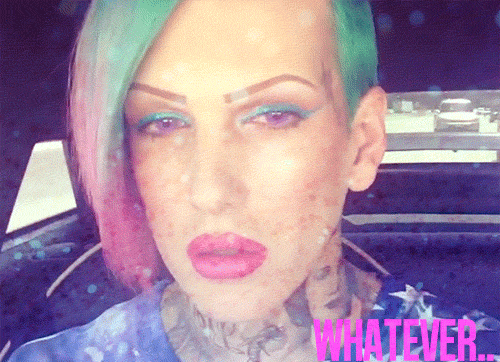
Jeffree Star, or Jeffrey Steininger, is the over-the-top, former-pop-singer, wildly popular male beauty guru. He launched his own makeup brand, Jeffree Star Cosmetics, in 2014.
Star, though notably accepting of the LGBT+ community (which, as an openly gay man, he should be), has a long term history of making derogatory and racist comments.
At first glance, he seems to own up to his past racial slurs and racist comments (like telling a black woman that he wanted to throw battery acid on her skin and using the N-words) in an apology video where he declares that "the person that said those horrible, vile things... that person was depressed, that person was just angry at the world, that person felt like they were not accepted, that person was seeking attention."
He blames his past actions on depression and anger. We can kind of accept that, right?
That is, until more slurs come to light.
Jackie Aina, another beauty guru who is well known for her outspoken nature, took to Twitter in September of 2018 to say that she would no longer support Star as a black woman. Her Tweet featured an open letter to Star.
"I have not and will not excuse his blatantly racist behavior and — not his past references to me in derogatory terms, his use of the N words nor his efforts to eliminate spaces and opportunities for people of color," Ms. Aina wrote.
Around the same time, Star's former hairdresser posted photos of conversations he'd had with him in which he used the N-word, along with a video of him referring to Jackie Aina as a "gorilla" in 2017.
Back to the apology video: Star claims that those videos that showed him in an angry depression were taken 12 years ago. "I look at them and it just makes me sick to my stomach because I don't know who that person was," he said in reference to these old videos.
Well, Jeffree, I think that person is the same one that referred to a black woman as a gorilla and other derogatory terms.
James Charles
 Giphy
GiphyJames Charles Dickinson skyrocketed to popularity when his senior photos didn't properly accentuate his highlighter and he had them retaken with his own ring light. Shortly afterward, he became CoverGirl's first CoverBoy.
His first scandal happened in 2017 when he posted a now-deleted Tweet prior to a trip to Africa. "I can't believe we're going to Africa today omg what if we get Ebola?"
James deleted the Tweet almost immediately.
About nine months later, he took to Twitter again to make a formal apology video, in which he also apologized for other, older Tweets from when he was 13 that were also racist and, as he put it, ignorant.
"They did not come from a place of hate, they came from me being a really ignorant 13 year old that shouldn't have had a Twitter account," he said in the video.
Since James' 2017 public apology, he has been a proud advocate for inclusivity in the beauty community.
When the Tarte Shape Tape Foundation launched, James gave a review that called out the brand on their poor shade range.
When James released his eyeshadow palette collaboration with Morphe, he featured four distinctly different makeup artists on his channel to use his palette.
When James launched his line of athleisure, Sisters Apparel, he kept it size and gender inclusive with unisex clothes all available in sizes XS through 3XL.
So, where do we all draw the lines here?
Do we forgive James' and Jeffree's pasts? Do we call them out? Do we "cancel" them?

